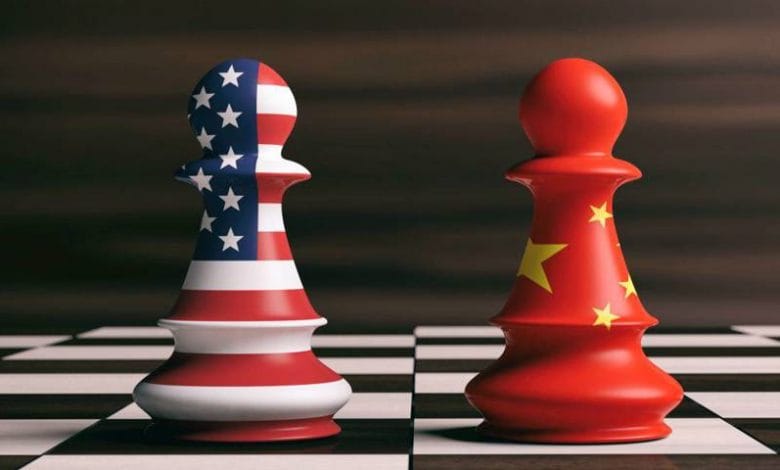
Europe risks irrelevance unless it muscles up
As the US shifts attention to the Pacific we will be left defenceless unless we cooperate as neighbours
Imagine a fearsome European Foreign Legion at Kabul airport, with highly trained multinational teams of diplomats, officials and military police working with special forces to organise an orderly airlift of Afghans and foreigners. Imagine Europe’s economic clout deployed to ensure that neighbouring countries — Iran, Turkey, Uzbekistan, Tajikistan, Pakistan and most of all China — play ball in handling the aftermath of America’s withdrawal. Imagine heavyweight European decision-makers — the former Swedish prime minister Carl Bildt, perhaps, alongside Radek Sikorski of Poland — shaping and communicating our policy. Imagine, in short, a muscular, far-sighted Europe ready to shoulder the burden of preserving a safe and prosperous world.
It’s fantasy. But only because of our own decision-making, or rather lack of it. We Europeans, about 600 million of us, are bigger and richer than the United States. Nobody stopped us being strong. We just chose to be weak. We preferred talk to action.
Most continental European countries, especially the big ones, scrimped on defence. We all hesitated to pool our resources. Our leaders ensured that important international jobs went to non-entities who would not steal the limelight rather than to truly credible contenders (sorry, Carl and Radek). We put short-term profits over long-term security, especially in technology (China’s Huawei) and energy (Russia’s Gazprom). Post-Brexit Britain has preferred global grandstanding to hard-but-dull work on European security. We all relied on the US for leadership and protection. Now Washington, which should surprise nobody, has put its own interests first and left us bruised and fuming.
Afghanistan underlines Europe’s protracted adolescence. It is high time we grew up. President Macron’s “strategic autonomy” looks pathetic in light of the fiasco in Kabul. And where was the self-professed “geopolitical” European Commission? Children dream of being astronauts. Adults study astrophysics and build spaceships.
Brexit is no longer the issue. Regardless of membership of the EU or Nato, we and our neighbours need to defend our own interests and show we are serious. The immediate practical priority is terrorism — a threat that will now worsen. Jihadists are emboldened. Others feel furious betrayal. Screening the tens of thousands now fleeing to the West will require unprecedented counter-terrorism co-operation, especially data sharing.
Next is counterintelligence. Russian and Chinese agents are running wild across the continent. They bully critics, buy influence, spread disinformation, steal secrets and subvert institutions, all with almost complete impunity. They operate from countries such as non-Nato Austria, where the local spy-catchers are toothless and demoralised. Everyone is less safe as a result. We need to identify and prosecute perpetrators and their accomplices, and banish for ever those operating under diplomatic cover. We should make such responses public, whatever the short-term embarrassment.
Other priorities include north Africa, where Britain and France are working more closely than cross-channel squabbles might suggest. We need a strategy for the Black Sea countries too. Georgia, the most fragile democracy in the region, faces a wave of Russian-inspired kidnappings, a troop build-up in its occupied territories and growing economic and political pressure. Some fear the government in Tbilisi may be ready to drop its Nato and EU aspirations in return for a peace deal. That would be a triumph for the Kremlin, the end of 20 years of western efforts to promote freedom and security in the Caucasus.
The biggest military worry is northeastern Europe: the Nordics, Baltics and Poland. In past years we could rely on tripwire forces on the front line, backed by the certainty of American-led reinforcement and deterrence. Without US help our intelligence, surveillance and reconnaissance abilities are patchier, hampering our ability to counter a surprise attack. We also lack the long-range, stealthy precision weapons needed to match Russia’s most useable — ie smallest — nuclear arms. After a week’s fighting European supplies of munitions and spare parts start running out. As the US draws down its stockpiles here to meet the demands of the Pacific, a dangerous gap is growing between plans and capabilities.
None of this means giving up on the US. The transatlantic alliance has proved astonishingly durable and successful over seven decades. It survived convulsions over Suez, Vietnam, nuclear weapons and the Americans’ ill-conceived global war on terror. The transatlantic trade and investment relationship dwarfs everything else, for the US and the EU alike. American investment in the EU is three times higher than in all of Asia; EU investment in the US is about eight times bigger than in India and China combined. The US and European economies together account for about half of the entire world’s GDP. That should ensure that the US cares about European security for the foreseeable future.
But not at any cost. Priorities are shifting. China now matters most in Washington. Europe comes second. How far we drift down the agenda depends on us. If we want to sustain the transatlantic relationship, we must think hard-headedly about our diplomatic, economic, technological and military involvement in the looming trans-Pacific conflict. A state of permanent adolescence will exhaust the grown-ups’ patience — and leave us fending for ourselves.